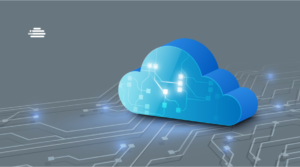Data is booming, with technologies ranging from IoT to blockchain applications. Decentralized storage provides an excellent opportunity to manage the huge amounts of enterprise data collected by businesses around the world. But why is it worth combining decentralized storage with blockchain and what are the benefits of blockchain data storage? We will take a look in this article.
Businesses have abandoned centralized storage of local data to use cloud providers for storage. Most cloud solutions always involve storing business data in one or more sites, managed by a single provider. Cloud installations are outsourced, but essentially centralized. As decentralization shifts data storage into the next area, many experts share the view that may soon become a new standard.
The way we process data is likely to change dramatically. People are starting to realize that their personal data is a valuable asset: some people want to share it, others would prefer to keep it private. Centralized data storage is becoming an attractive target for hackers, so logically, the blockchain with its promise of security and disruptive features can become a winning option.
Why using decentralized data storage?
- Bulletproof security. Clear and decentralized data storage will only work if security is restricted and the data encryption typically applied to decentralized storage is extremely strong. Decentralized networks also eliminate single points of failure because your storage does not depend on a single actor or location.
- Immutability. Decentralized networks can borrow blockchain features, ensuring that no party controls the data. The data becomes immutable, that is, it is correct because a correct copy is stored in multiple places.
- Optimized costs. Decentralized storage optimizes costs because storage markets use the capacity already available. You do not have to buy an infrastructure to store your company’s data. It is simply dedicated to decentralized storage already available.
- Scalable infrastructure. Storage markets are large networks with massive storage capacity. These decentralized networks can adapt to your needs: evolve when needed, reduce when you no longer need it.
Decentralized data storage and blockchain are a powerful combination
Decentralized data storage is closely related to block chains because many concepts overlap. Blockchain itself is a decentralized data storage network, but blockchain operation makes it better suited for storing and managing transactional data.
Blockchains can be used for secure transfer of documents in multiple domains. However, storing data in block chains does not handle large amounts of raw data. This is where decentralized networks can help blockchains.
Until recently, many popular blockchain-driven applications (DAPs) had to use traditional cloud storage providers for data storage. But cloud storage is not a good choice for incredibly dynamic applications. The concept of decentralized data storage (which includes storage marketplaces) offers a way forward, allowing applications such as prediction markets to flourish without being hampered by the huge amounts of data to be stored and stored. treat.
Which sectors benefit from data storage in the blockchain?
The cost and scalability of decentralized storage makes it suitable for a wide range of industries. That said, features such as data immutability and the potential for extremely high security levels have a narrower but extremely valuable purpose.
These features make chain data storage particularly suitable for highly regulated industries, such as healthcare and financial services. Data protection and verification of the validity of stored data is of primary importance for companies operating in the health and financial fields.
Just as cloud computing entails risks related to the involvement of third parties in data management, so is the storage of data by blockchain. Any technology based on distributed networks requires close monitoring, but the stringent security measures applied to these technologies often result in extremely effective measures.
Yes, adopting new technologies, including blockchain and decentralized data storage, carries risks and costs, but these can be mitigated. Mitigation starts with the right partner. A partner who will also help your business make the most of advanced technology. If you don’t know what I’m talking about, try LetsCloud!





